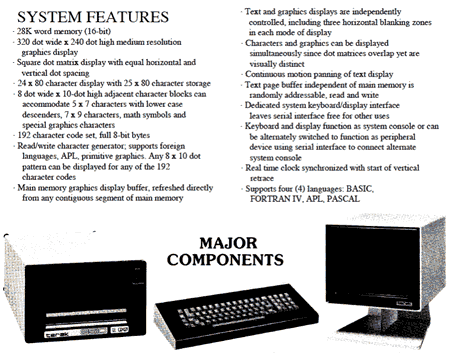Over the past several decades of computer work, I’ve dealt with a variety of archive and backup methods. I still have a couple of 8.5″ floppy disks from the Terak system that was in the basement of Prince Lucien Campbell Hall on the University of Oregon campus when I got there in 1980.

Over the years, I’ve tried to hold onto most of my personal digital output. There are still 5.25″ floppies for a TRS-80 upstairs that hold the code and most of the data for the play-by-mail gang warfare game I wrote more than twenty years before the current social network mafia games. I used to have buckets of “hard” floppies, then 44MB Syquest removable hard disks, then 250MB Syquests, but for the past sixteen or seventeen years I’ve relied on a program called Retrospect for both backup and archiving.
I came across Retrospect (originally from a company called Dantz) back in the days when I was working in the pre-press business and we were looking for a way to, duh, handle the firehose of data from four-color scans, juggle jobs on and off the limited space of the servers of the early ’90s, hold onto old scans for pickups in future jobs, and cover our butts when a machine or a server went out. With the advent of DAT tapes holding a then-inconceivable gigabyte or two of data, Retrospect — with its ability to back up multiple machines across a network, run unattended, and search for files by name or folder or date — was a literal godsend.
As the years have gone on, I’ve used it on a semi-daily basis. When I had an office outside the house and was running my own servers plus multiple workstations on both Windows and Mac, everything got backed up twice a day: mid-day and after business hours. I burned through a couple of DAT drives, then as terabyte hard drives became available I moved to those.
Archives started off on DATs as well, but I moved most everything to CD-ROM (then DVD-ROM) because of the flakiness of the tape systems. A few things got missed in the translation, but that’s my own stupid fault.
So for the past several years things have been pretty stable. My main workstation, an old dual 1GHz G4 has an external terabyte drive for incremental backups of everything it can access (the PC hasn’t been turned on for a while, but it has a Retrospect client). As jobs age out, they go onto DVD-ROM (and because I’m a little crazy about these things, I make a non-Retrospect version of the archive, as well, look for me soon on Hoarders).
The problem, of course, is that I got a new laptop to work on iPhone projects over a year ago and the version of Retrospect I’ve been using — 6.1 — won’t back up the newer OS X operating system. Since the only times I’ve broken my rules on twice-a-day backups have generally coincided with a big disk error that’s screwed me over, it’s been on my nerves. So last month I downloaded the trial version of Retrospect 8 (now from EMC) and installed it. I can back up both the desktop and the laptop now, although the engine works as a server (it runs on either a PowerPC or Intel chip) and a management tool (on the laptop, because it can’t run on a non-Intel processor). It takes a little getting used to, but the backups seem to be coming off on time. The desktop’s usually on and it runs the backup, and if the laptop’s on at the right times, it gets backed up, too.
The holidays and a cold cut into my time to play with the system for the past couple of weeks, but I spent part of this morning trying to figure out how to deal with the archives. I couldn’t seem to add them and I started to get frustrated at the lack of information in the online knowledge base. Apparently, I’d missed this important bit of info from the Read Me when I set up the trial:
Upgrading from Retrospect 6.1
Because Retrospect 8.1 does not read Backup Sets created with previous Mac versions, the installation process does not overwrite or remove existing Retrospect 6.1 (or earlier) installations. It is recommended that you continue to maintain your existing Retrospect installation to perform restores from legacy Backup Sets.
We’ve had a lot of discussion on various Director forums about whether a new, glorious version of Director would need to maintain backwards-compatibility in file format and functionality, and I tended to say “Why bother?”, but Director wasn’t a tool where one of its main purposes was to maintain archives of data.
